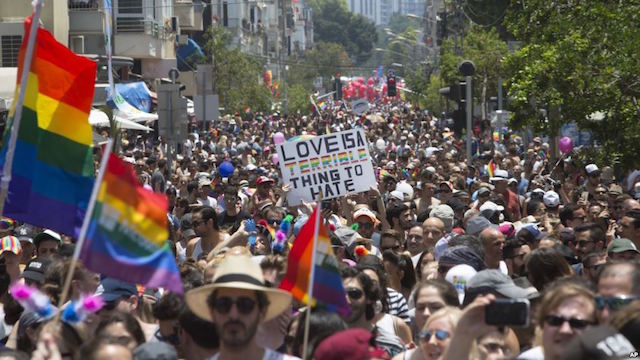Gay Rights Going Global
LGBT acceptance varies between different regions of the world. A possible reason for this disparity may be the differences in cultural values. Should different cultures accept the LGBT movement despite differences in their beliefs or values?
In the past, societal norms dictated how people should think and act. Men are supposed to be strong and stoic, women are supposed to be delicate and feminine; anything different is shunned, labeled as abnormal, and condemned. These gender stereotypes are deeply ingrained in society, coming from a time where biological sex was expected to determine your behavior. Industrial and technological revolutions brought about new ways of thinking, resulting in social movements that contributed to a more open society today. One of the most controversial social movements that comes to mind is the LGBT (lesbian, gay, bisexual, transgender) movement.
LGBT movements have gained more traction as more and more countries support social equality and LGBT rights. But when we look at the trends of acceptance around the world, it’s shocking to see that as countries like the US and Canada hold Pride marches for LGBT rights, countries like Russia and vast regions in Africa and Central Asia still have laws, and even the death penalty, against homosexuals. Similar regions of the world have similar acceptance levels for the LGBT community, which leads us to believe that on some level, LGBT acceptance is rooted in cultural beliefs and values. However, it is unreasonable to deny or even passively not accept the LGBT movement.

Let us first define what the LGBT social movement actually is: a fight for social equality, for the same right to freedom of expression that every human being is afforded. There are different aspects to this movement; socially speaking, it aims to challenge the social constructs of what it is to be “masculine” and what it is to be “feminine”, of homophobia and the “ideal” family structure of man and woman as husband and wife. Politically, the aim is to induce legislation that ensures equal rights, benefits, and protection from discrimination and harm. Its ultimate goal is to erase all the negative connotations associated with being “gay”, and to not need the movement in the first place.
From this definition, we can say that the LGBT movement is a matter of ethics, not of subjective cultural judgement. Not accepting the movement would by extension mean denying basic human rights to a portion of the population that is undeniably human but is seen otherwise. It would be boxing in people to a certain standard that society sets. But who or what decides these standards? Take the case of China, for example. LGBT campaigns flare up and are quenched by the government; earlier this year, Weibo, China’s most prominent social media platform, was flooded with posts with the hashtag #5.17IDAHO, representing the May 17 International Day Against Homophobia. Such posts are banned and censored, resulting in the ignorance of a large part of the population on what the LGBT movement really is about. In February 2017, male residents of Chechnya, Russia were abducted and tortured based on their sexual orientation. Such purges serve to instill in the population that being gay is bad and would lead to negative consequences. The louder voices of a select group of people in society determine the lens through which the rest of the population views the LGBT community, although not all might agree had they truly understood what the LGBT stands for.
Some societies frame the LGBT community as abnormal or potentially harmful on the basis of religious, political, and moral standpoints. However, the LGBT community does not aim to oppose or disrespect anyone else’s beliefs; it aims to gain the opportunity to express themselves in a way that they feel comfortable with. This individual expression is what everyone should have but is not granted to the people who are “different”. Supporting them means giving them the chance to speak up, even if you don’t agree with what they have to say.
Global LGBT rights are ever-evolving. We are progressing towards a more accepting and more inclusive global society, but we can never get there if we continue to hold outdated notions of gender expression. Trying to understand the root of the LGBT social movement rather than quelling it based on cultural and societal notions would catalyze a revolution that would end oppression and injustice to a group of people who have been marginalized for centuries. We can save the discussion of opposing beliefs another time; for now, we must work to make sure that everyone, regardless of sexual orientation, has the right to express themselves in the first place.

